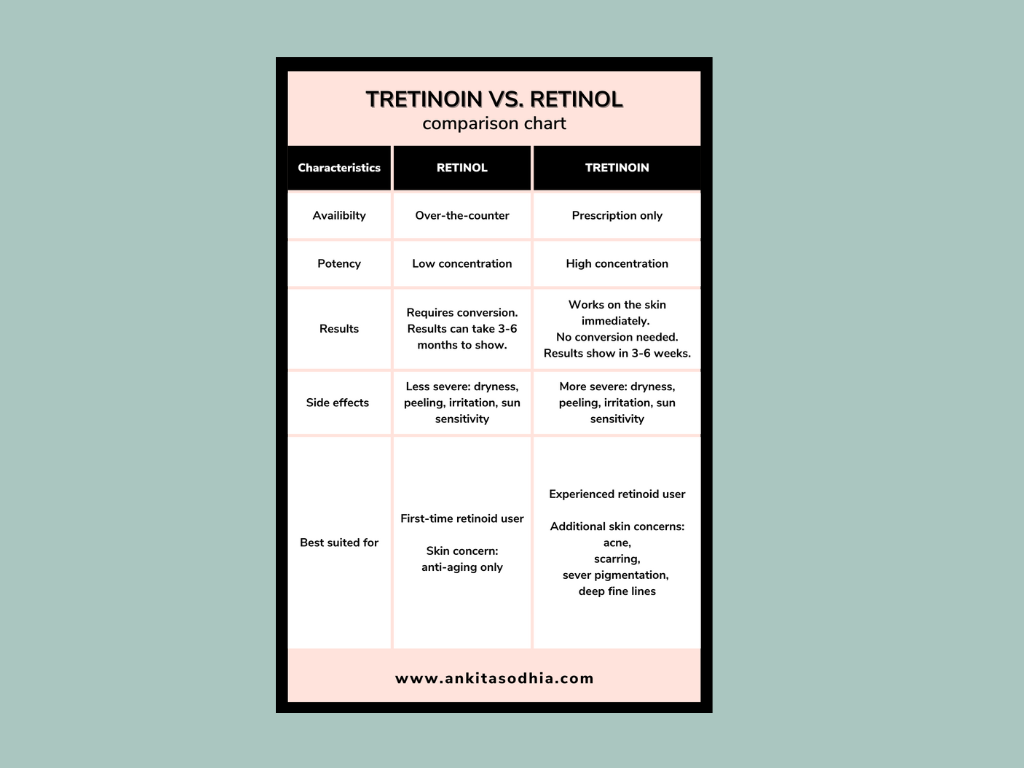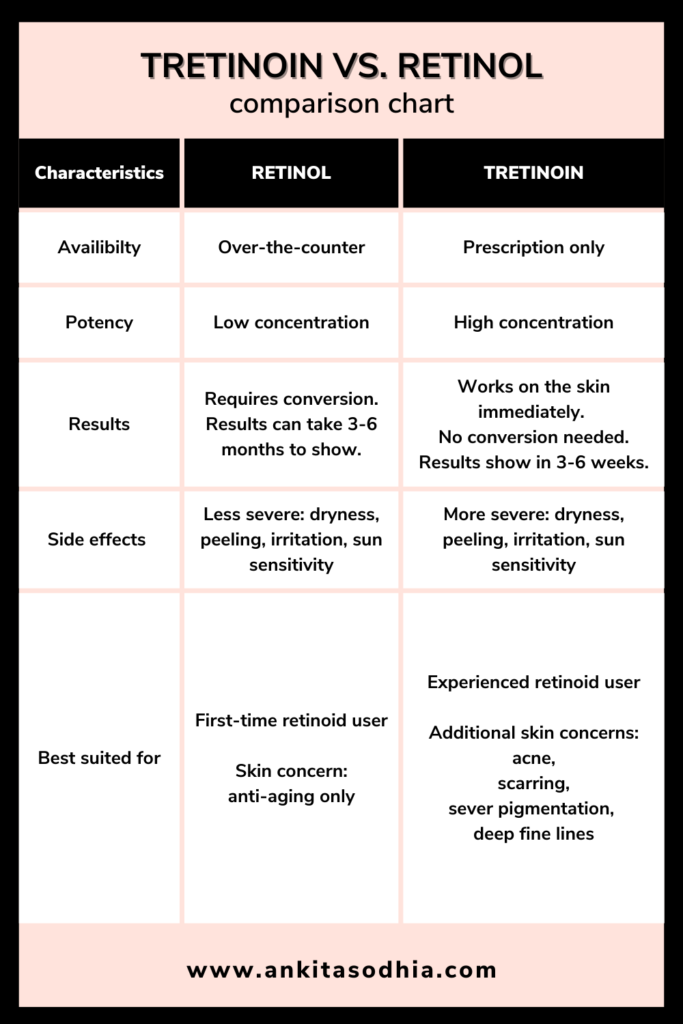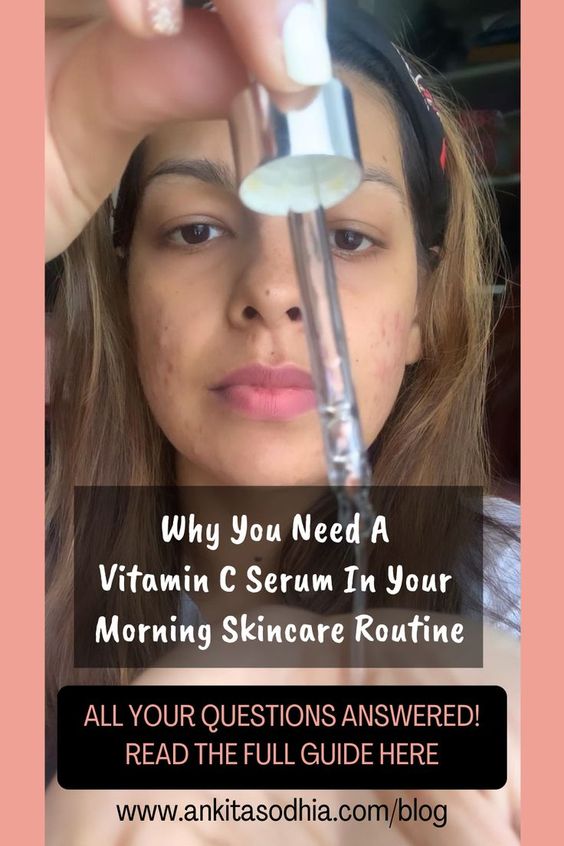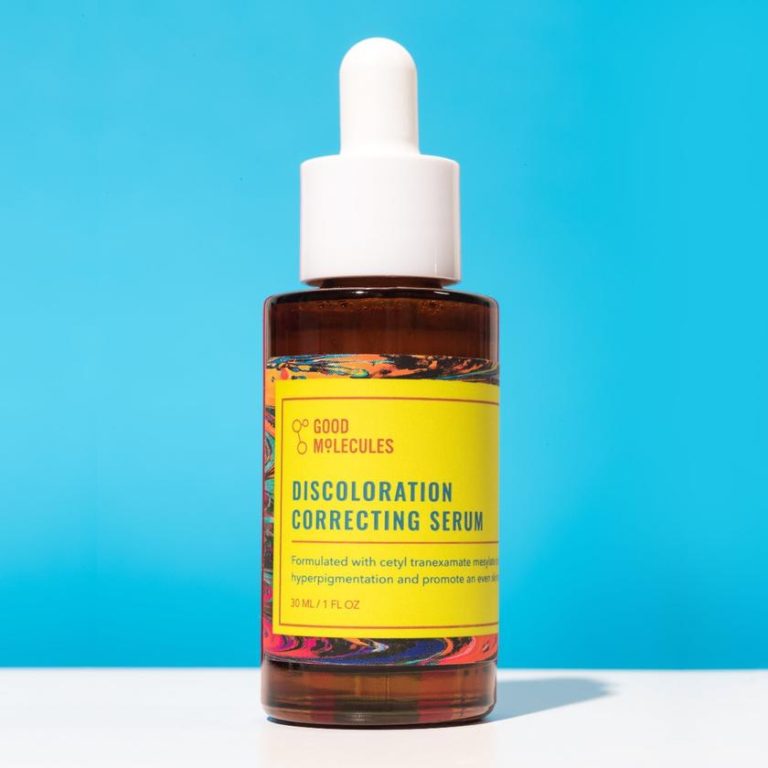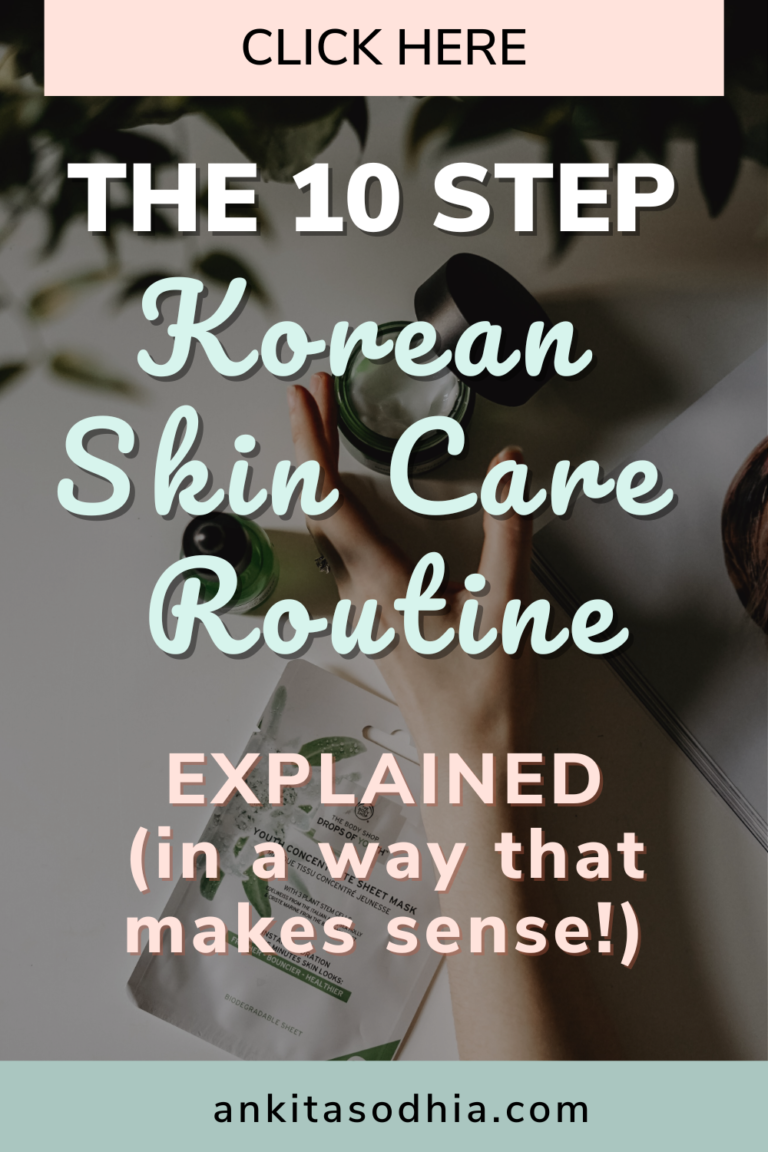Tretinoin vs Retinol — Which One Is Right For You?
In this post, I’m diving a deeper into the world of retinoids and looking at the difference between tretinoin vs retinol, so you can figure out which one is right for you.
I also highly recommend you read A Beginners Guide: What Is Retinol and How To It In A Skincare Routine first, if you’re totally new to retinol / retinoids.
Please note: I am not a doctor and all the information below is for illustrative and informational purposes only. Please consult your doctor before starting any new skin care products.
Table of Contents
What Is Tretinoin?
Tretinoin is a prescription-grade retinoid, which means it can only be obtained with a doctor’s written prescription (in most places). It is 20x more potent than retinol and the only FDA-approved form of retinoid.
Tretinoin is a pure form of retinoic acid, which acts directly on skin cells (there is no conversion required), so it is much more potent and results show up much quicker (within 3-6 weeks) on the skin. But, it is also potentially more irritating and drying on the skin.
What is Retinol?
Retinol is an over-the-counter (OTC) retinoid, which means it is easily available in stores everywhere. It is not a pure form of retinoic acid; it is first derived as retinol esters and once applied on the skin will use the skin cells to convert retinol into retinoic acid. This means it is much gentler on the skin, but the results take much longer (3-6 months) to show.
Tretinoin vs. Retinol
When it comes to the tretinoin vs retinol debate and deciding which one is right for you, here are a few things you should keep in mind:
First-time users should stick to retinol
If you’re using retinoids for the first time, then start with a retinol product first, so your skin gets used to it. Safe to say, if you jump into tretinoin right away, you will experience excessive redness, irritation, skin peeling etc.
For general anti-aging skincare, you can stick to retinol
If you are used to retinol, have no skin issues, and simply want to prevent fine lines and wrinkles, then choose a stronger potency retinol between 2-3%. You can find retinol products in the form of moisturizers, creams, serums and eye creams.
For concerns like acne, scarring, pigmentation and severe fine lines, tretinoin is more effective
If you are familiar with retinol, but have more severe skin concerns such as acne, fine lines or severe hyperpigmentation, then you should level up to tretinoin. Remember, tretinoin is a medical-grade product, which means you should only use it, if there is a need for it.
Tips for using tretinoin for the first time
Since tretinoin is 20x more potent than retinol, be prepared to see some side effects such as peeling, dryness and irritation almost instantly. Don’t let this scare you. Just keep a few things in mind when using tretinoin:
- If it’s your first time using tretinoin, then apply it after moisturizer in your night-time routine. The moisturizer will act as a buffer until your skin gets used to the tretinoin.
- Make sure your skin is completely dry before applying tretinoin. If you apply tretinoin (or retinol) on wet skin, then it penetrates deeper into the skin and causes more irritation.
- Start off with once a week and build up to 2-3x a week based on your skin’s needs and tolerance. Just a little personal side note here: I have severe acne-prone skin and you would think I should use tretinoin more often, but I am still (after 4 months of use) only applying once a week because my skin still feels dry, itchy and sensitive in direct sunlight. So, just be mindful not to over do it. Less it not more in skincare.
- Use sunscreen, especially on the morning after using retinoids, because it makes skin more sensitive to the sun.
- Do not use any other treatments such as salicylic acid, benzoyl peroxide, peels, glycolic acid, etc on the same day as retinoids. Alternate days of use.
The bottom line for tretinoin vs retinol: retinol is perfectly fine to use in the long-term as an anti-aging treatment, while tretinoin is the only proven solution for more severe concerns such as acne and PIH, in addition to photoaging.
Please note: I am not a doctor and all the information below is for illustrative and informational purposes only. Please consult your doctor before starting any new skin care products.
Related:
How To Use Salicylic Acid And Retinol In Your Skincare Routine
All About Hyperpigmentation: Causes, Treatments, Good -For-You Ingredients & Makeup Tips

